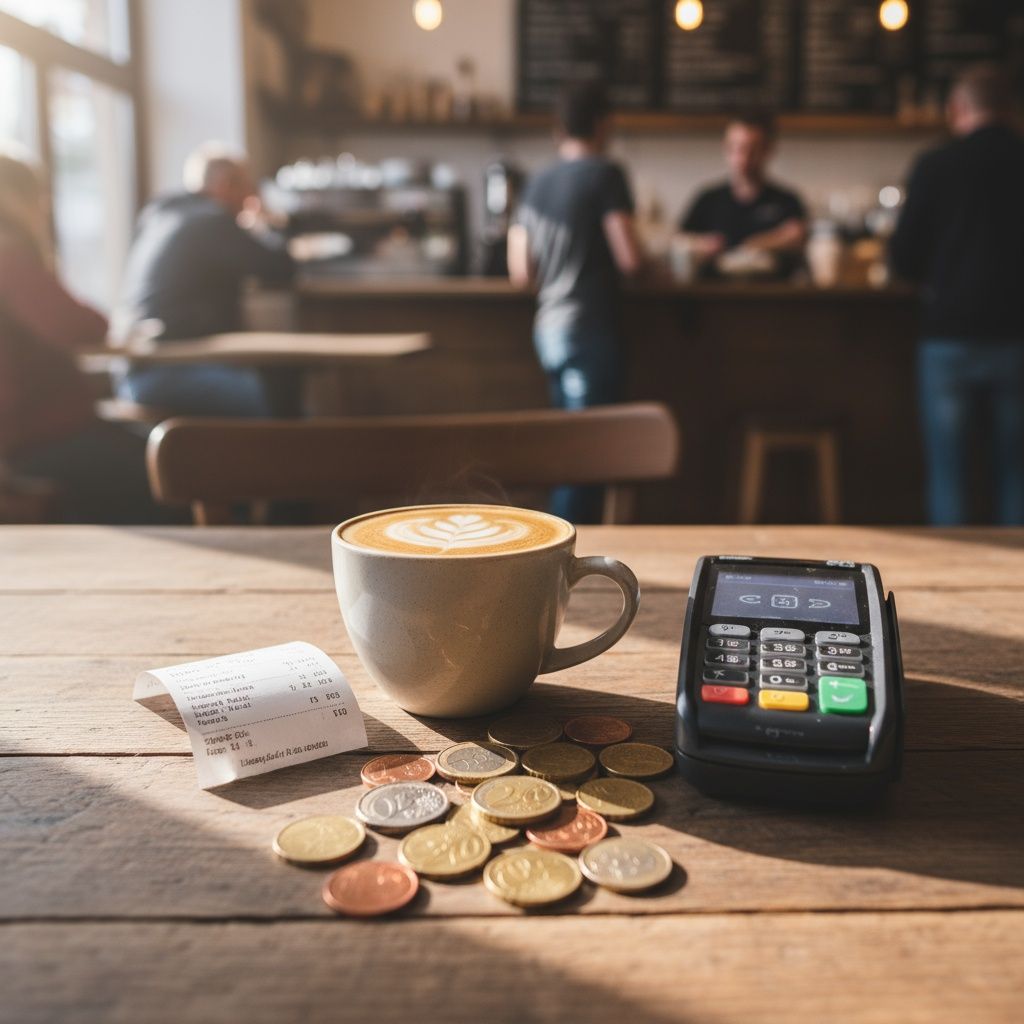Trinkgeld in Deutschland: höflich zahlen
Mini-Artikel: Trinkgeld in Deutschland – wie viel, wie sagt man es höflich?
 Dannis
Dannis
Trinkgeld in Deutschland ist freiwillig, aber üblich. Im Café oder Restaurant: meist 5–10% oder einfach aufrunden.
Wortschatz: Trinkgeld (tip), aufrunden (round up), getrennt zahlen (pay separately), die Rechnung (the bill), „Stimmt so“ (keep the change).
So fragst du höflich nach der Rechnung: „Die Rechnung, bitte.“
Der Kellner fragt oft: „Zusammen oder getrennt?“ Antworten: „Zusammen, bitte.“ oder „Getrennt, bitte.“

Wichtig: Du sagst den Endbetrag. Beispiel: Rechnung 16,80 €. Du sagst: „Machen Sie 18 Euro, bitte.“ So gibst du Trinkgeld.
Typisch: Bargeld oder Karte. Trinkgeld geht beides. Bei Karte sagst du den neuen Gesamtbetrag. Bar geben ist oft am einfachsten.
Schneller Satz beim Geben: „Stimmt so, danke.“ Das heißt: „Der Rest ist für Sie.“

Comprehension check:
Was heißt „Stimmt so“?
Keep the change.
We split the bill.
Round up by 5%.
The total is wrong.
“Stimmt so” tells the server to keep the change. It’s a polite tipping phrase.
You say it when you don’t want any change back.
Wie fragst du höflich nach der Rechnung?
Die Rechnung, bitte.
Das stimmt so.
Wir zahlen getrennt, bitte.
Aufrunden, bitte.
“Die Rechnung, bitte.” is the standard polite phrase to ask for the bill.
It contains the word “Rechnung.”
Rechnung: 16,80 €. Was kannst du sagen, wenn du aufrunden willst?
Machen Sie 18 Euro, bitte.
Ich zahle 16,80, bitte.
Wir zahlen getrennt, bitte.
Zwanzig Euro zurück, bitte.
In Germany you say the final total you want to pay: “Machen Sie 18 Euro, bitte.”
You state the new total, not just the tip amount.
Discover next:
Do you like it? Want more?
Free & quick registration, no subscriptions!
🤗
For expats and alike – unlike any other language app you've tried!
🎮
Learn by scrolling and playing!
💪
Real grammar and idioms to sound like locals!
🧠
Endless FYP feed for language learning
🧠
Endless FYP feed for language learning
Related articles
Materials on related topics will help expand your understanding of the topics: